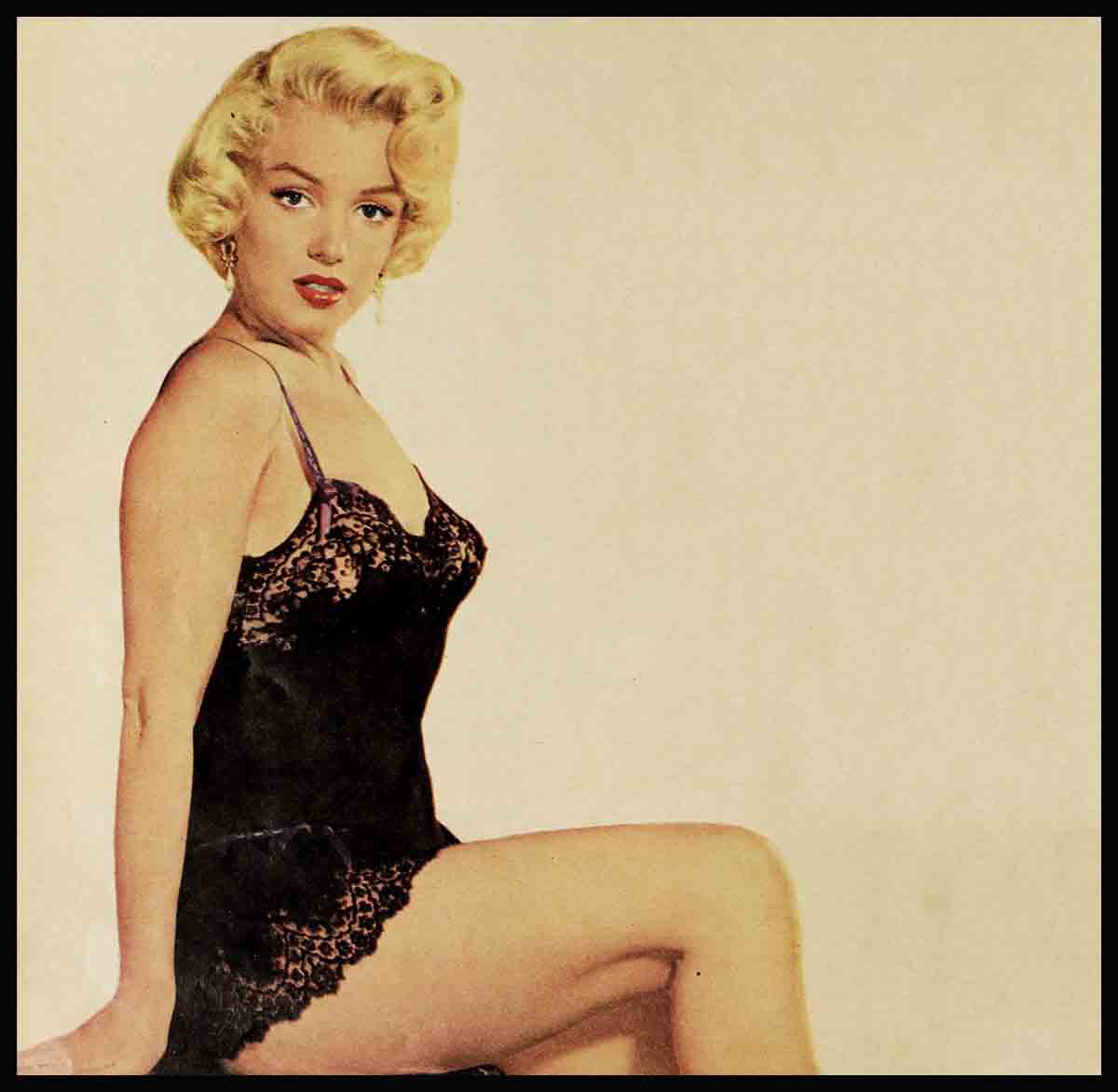
Marilyn Monroe and Joe: Who Turned Love’s Dream Into A Free-For-All?
Marilyn Monroe’s honeymoon began in the restful, secluded, rustic fashion typical of honeymoons.
Her attorney, Lloyd Wright, insisted that she and Joe spend a week or two at his summer estate in Idyllwild, a peaceful mountain village overlooking the desert resort of Palm Springs. There they stayed for the ten days after their hectic marriage in January.
They romped in the snow, swam in the pool, took sunbaths and rides into the desert. In Marilyn’s words, “We had the most wonderful time.” This, while hundreds of photographers and reporters were searching for them everywhere.
Once Marilyn and Joe left the safety of their mountain hideout, their honeymoon became a free-for-all, a colossal clambake involving agents, baseball players, 20th Century-Fox, the U.S. Army, Japan and millions of movie fans.
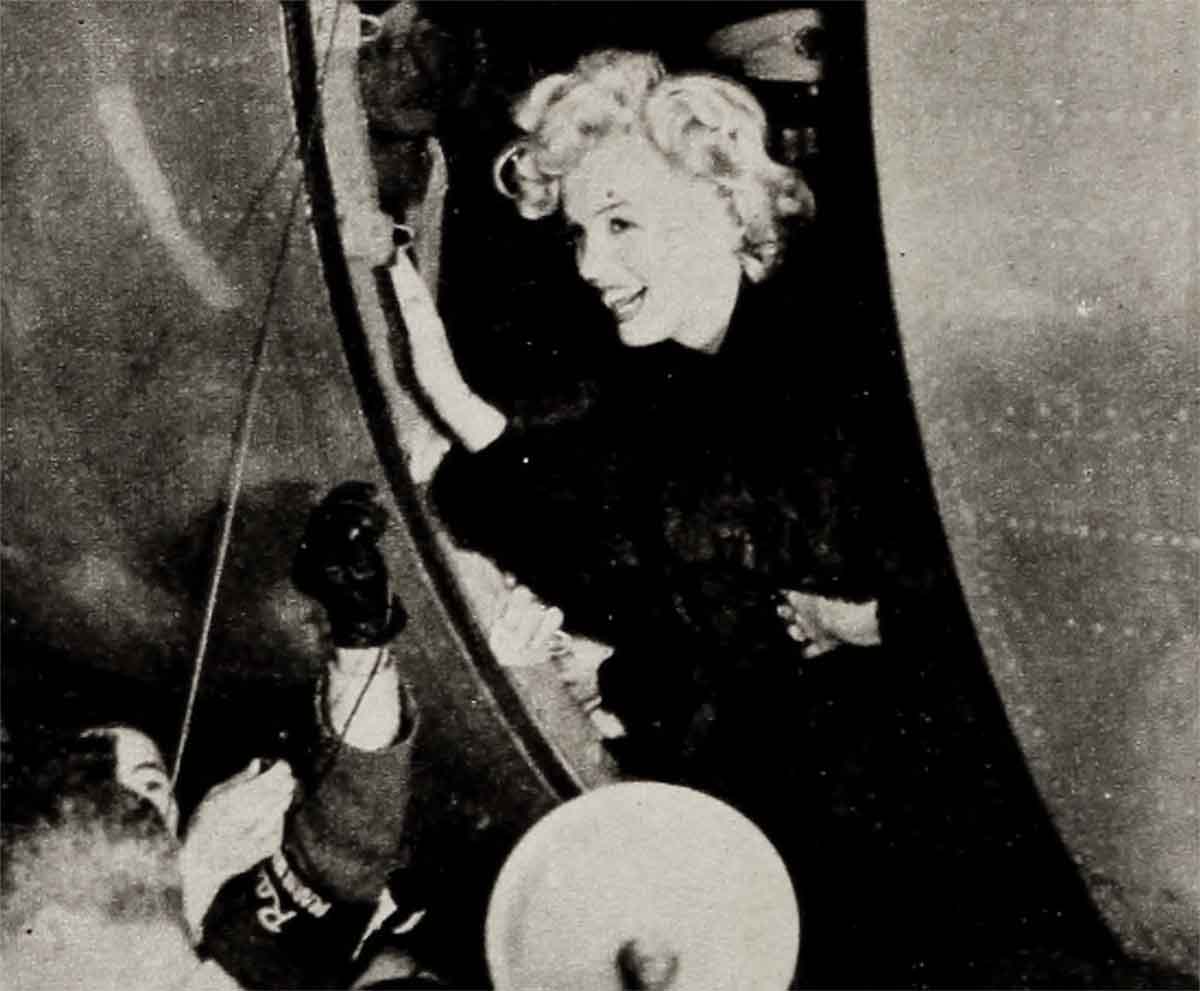
Marilyn and Joe DiMaggio planned a quiet honeymoon. They are both shy and retiring. The last thing in the world they wanted was to make their wedding trip the object of international reporting.
Somehow they got caught in the web of circumstance and before they knew it they were living their private life in public.
After their memorable stay in Idyllwild, Joe flew to New York to transact business with his attorneys, and Marilyn secretly slipped into Hollywood.
She read the script of Pink Tights and decided not to do the picture. That is, not unless the script were completely rewritten. Pink Tights had been made once before under the title Coney Island, and Marilyn simply felt that “St wasn’t for me.”
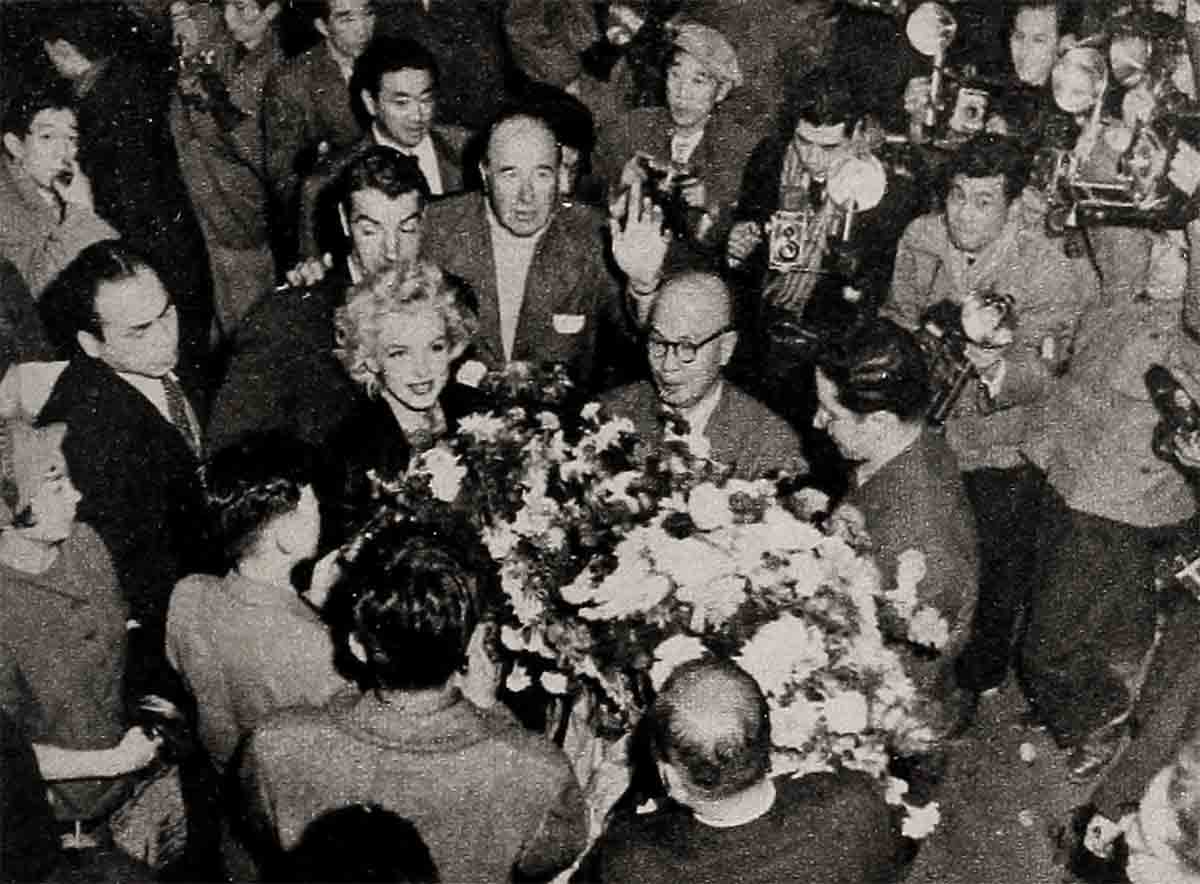
While Marilyn was hiding in Hollywood, talking only to her business manager, her agent, and one or two favored friends, Joe was talking on the phone to Lefty O’Doul in San Francisco.
One of the great baseball players of the century, Lefty had not only given Joe his first opportunity in organized baseball, but he had always remained a staunch friend. Joe had confided to him his intention to marry Marilyn, and Lefty had said, “Why don’t you have your honeymoon in Japan? I’m going over there in a couple of weeks to coach. Why don’t you and Marilyn come along? The Japanese people respect privacy. You can have a great time.”
Since this happened a few days before the wedding, Joe didn’t want.to commit himself.
“I don’t know,” he said. “Marilyn is supposed to make another picture and, well, we’ll see what comes up.”
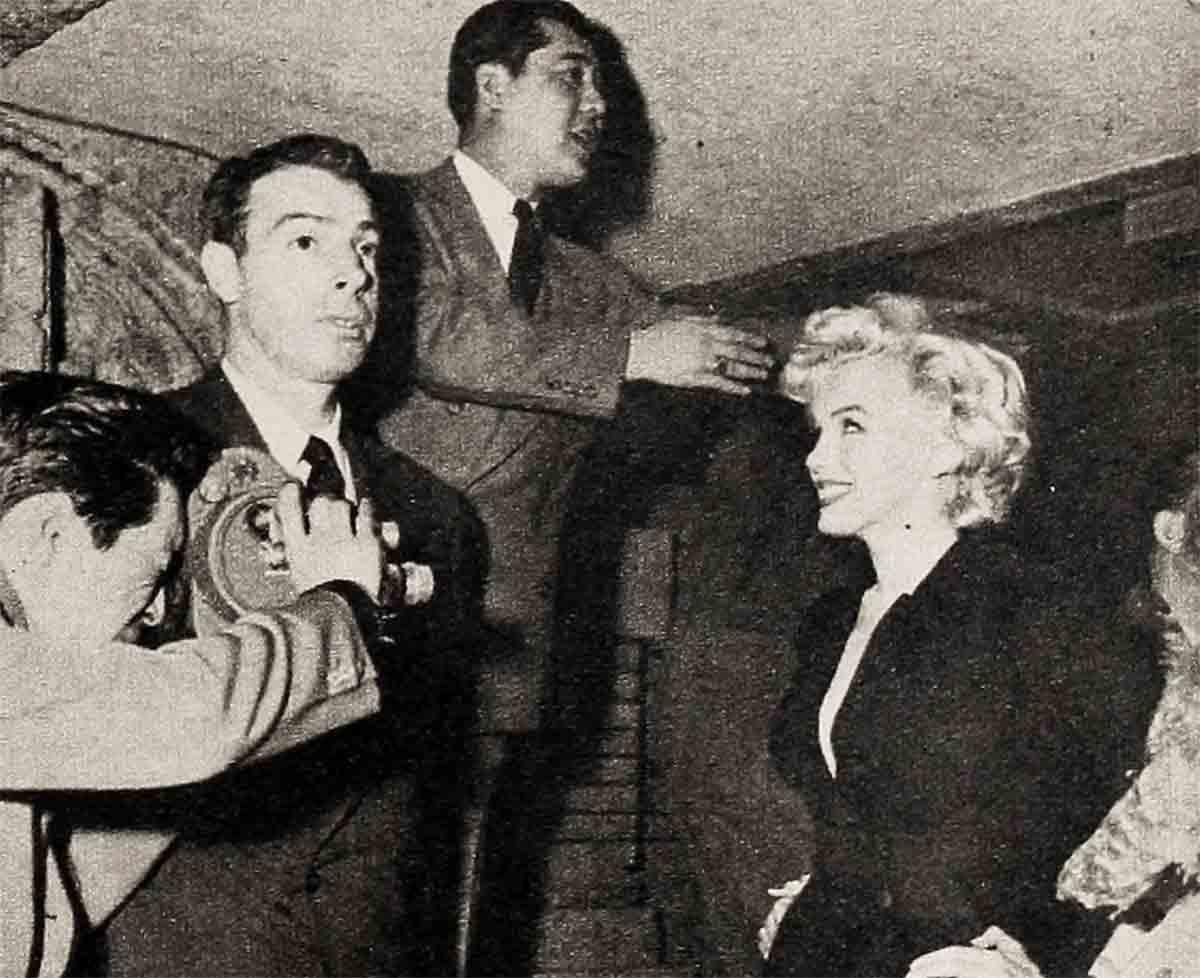
What came up was Marilyn’s refusal to do Pink Tights and her subsequent suspension by the studio, giving her all the free time she cared to take. When Joe heard from Marilyn that she wasn’t going into another film immediately, he and O’Doul began setting plans for the trip to the Orient.
Joe phoned his bride and told her to meet him in San Francisco and Marilyn slipped out of Hollywood just as quietly as she’d slipped in. A day later she and her husband and Lefty O’Doul were aboard a Pan American Clipper bound for Honolulu.
The free-for-all had begun.
When the visiting trio arrived at the Honolulu Airport they were mobbed by an estimated 2,000 fans most of whom wanted to become Marilyn’s close friends.
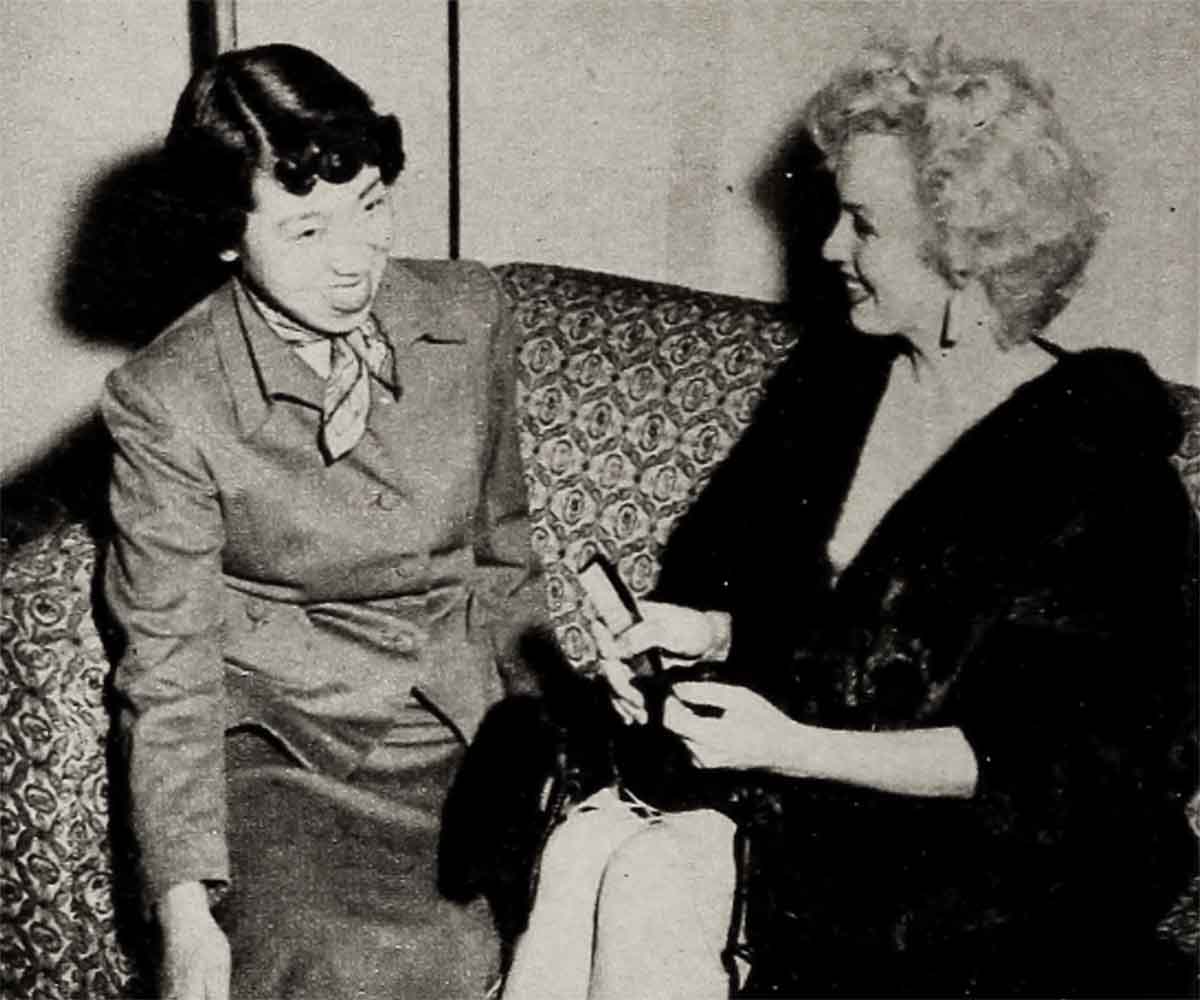
Hula dancers greeted the celebrities, the Hawaii Visitors Bureau officials draped them with leis and four special policemen helped Marilyn fight her way to the Pan-American passenger lounge.
“They kept grabbing at my hair,” she said nervously. “Did you see them, Joe? They kept grabbing at my hair.” Joe, expecting a little peace and quiet in Honolulu, shrugged his shoulders, said nothing.
The police formed a protective cordon across the narrow hallway leading to the lounge while Joe and Marilyn each drank a glass of Hawaiian pineapple juice.
The newlyweds then said they were ready to talk to the anxious reporters and photographers. They were most cooperative, Marilyn posing for pictures and Joe explaining that “we’re just on our way to Tokyo. We expect to get our visas tomorrow and then take off tomorrow night.”
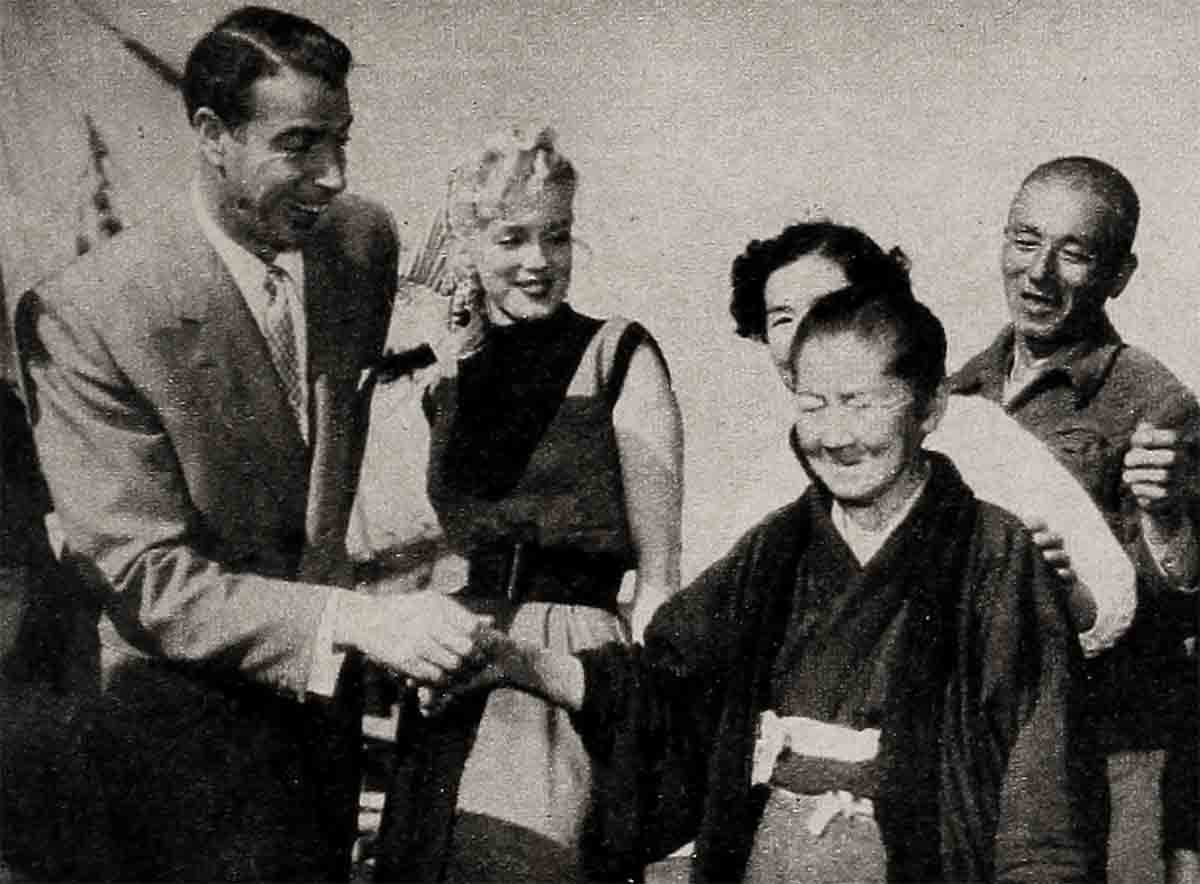
“Do you plan to swim at Waikiki?” they were asked.
“I don’t think we’ll have time,” Joe said. He looked at Lefty O’Doul.
“They want to spend a little time staying away from all you fellows,” O’Doul said with his big Irish grin. “After all, they’re lovebirds on a honeymoon.” Everyone laughed and a police official called out that there would be no need for control squads and road blocks at Waikiki.
Marilyn and Joe were ushered into a powder blue convertible driven by Louis Benjamin, the owner of a bar called The Log Cabin. DiMaggio had met Benjamin during World War II, and it was “Benny” who whisked them off to the Royal Hawaiian Hotel.
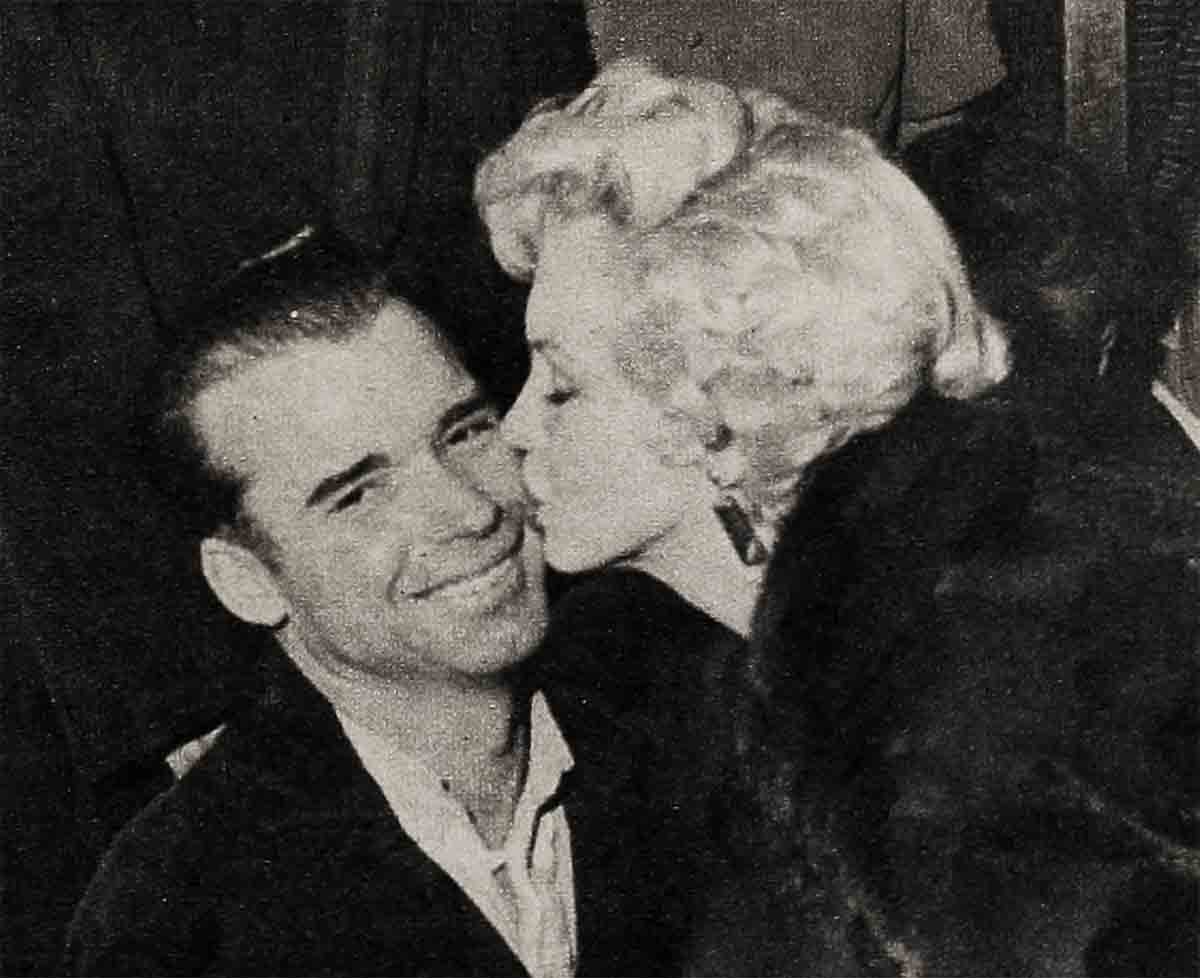
The following night the DiMaggios and O’Doul were headed for Tokyo for what Joe was assured would be “a quiet time.” This illusion was dispelled when the plane put down on the runway at Haneda International Airport.
The movie fans were so pushing, so numerous, so avid, that Marilyn and Joe had to scramble back into the plane. When the fans refused to disperse, the newlyweds escaped through the baggage hatch and ran to the Immigration Office.
It was even worse at the Imperial Hotel where more than 200 police were called out to maintain order. The Imperial has dozens of labyrinthine passageways. Practically all of these were blocked by Japanese fans shouting, “Malyn. Malyn Monloe.” The newspapers had made the serious error of announcing the DiMaggios’ hotel.
As Marilyn stepped into the lobby, the fans began to press. Plate glass broke; revolving doors stuck; two sight-seers fell into a fish pond.
Marilyn and Joe finally got to their room. O’Doul sent word to the press that the couple would be down in ten minutes. Marilyn, who is late to everything, including her own wedding, was about two hours late this time. The newsmen, realizing what she’d been through—the long trip, the milling crowds, the constant pressure—greeted her affably when she slithered into the Treasure Room.
She was given the seat of honor. O’Doul hovered protectively. Joe, almost unnoticed, leaned against a corner of the room where only four resolute baseball reporters began to question him. Marilyn, however, faced a battery of eighty-five. She smiled as the camera bulbs began popping.
MARILYN VISITS KOREA:
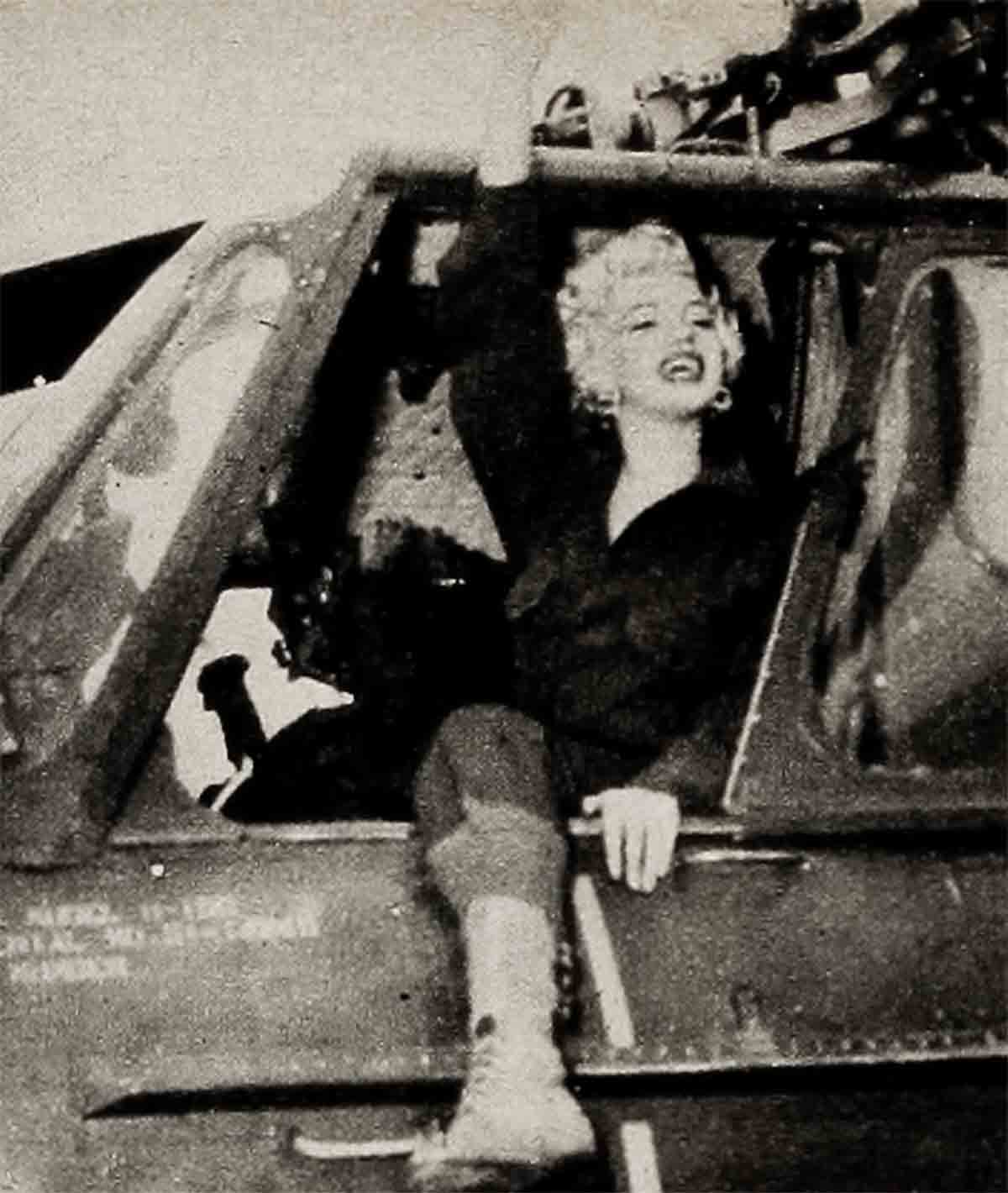
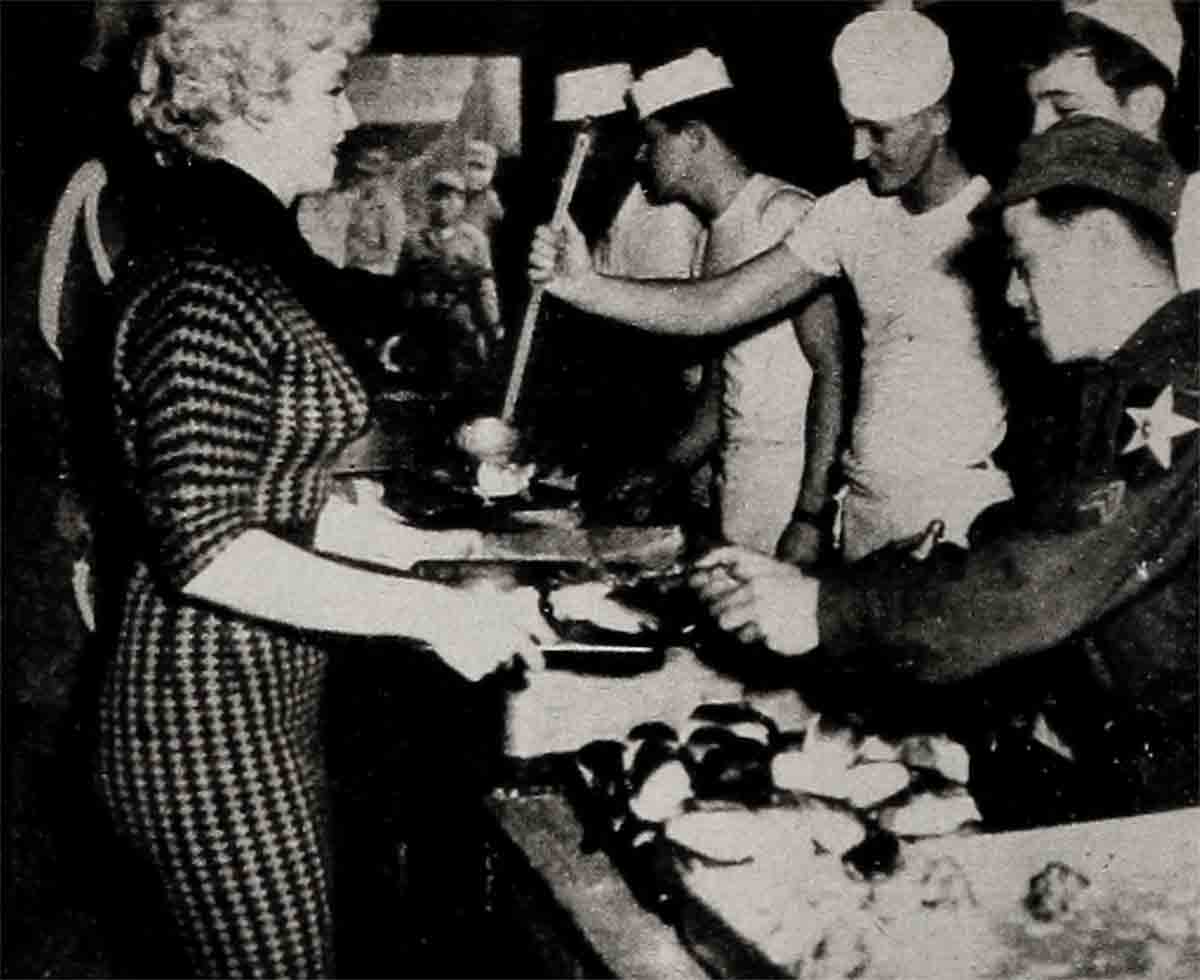
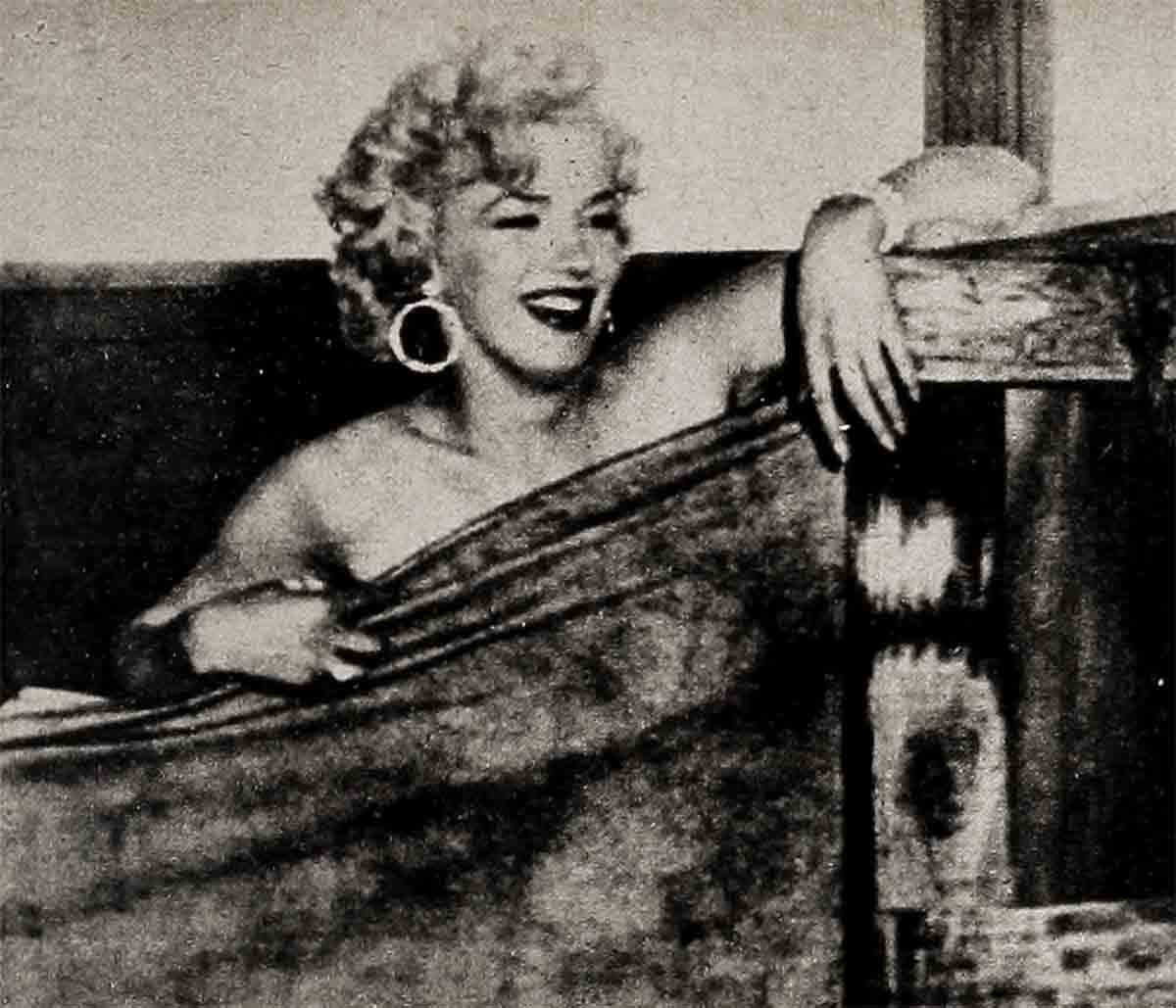
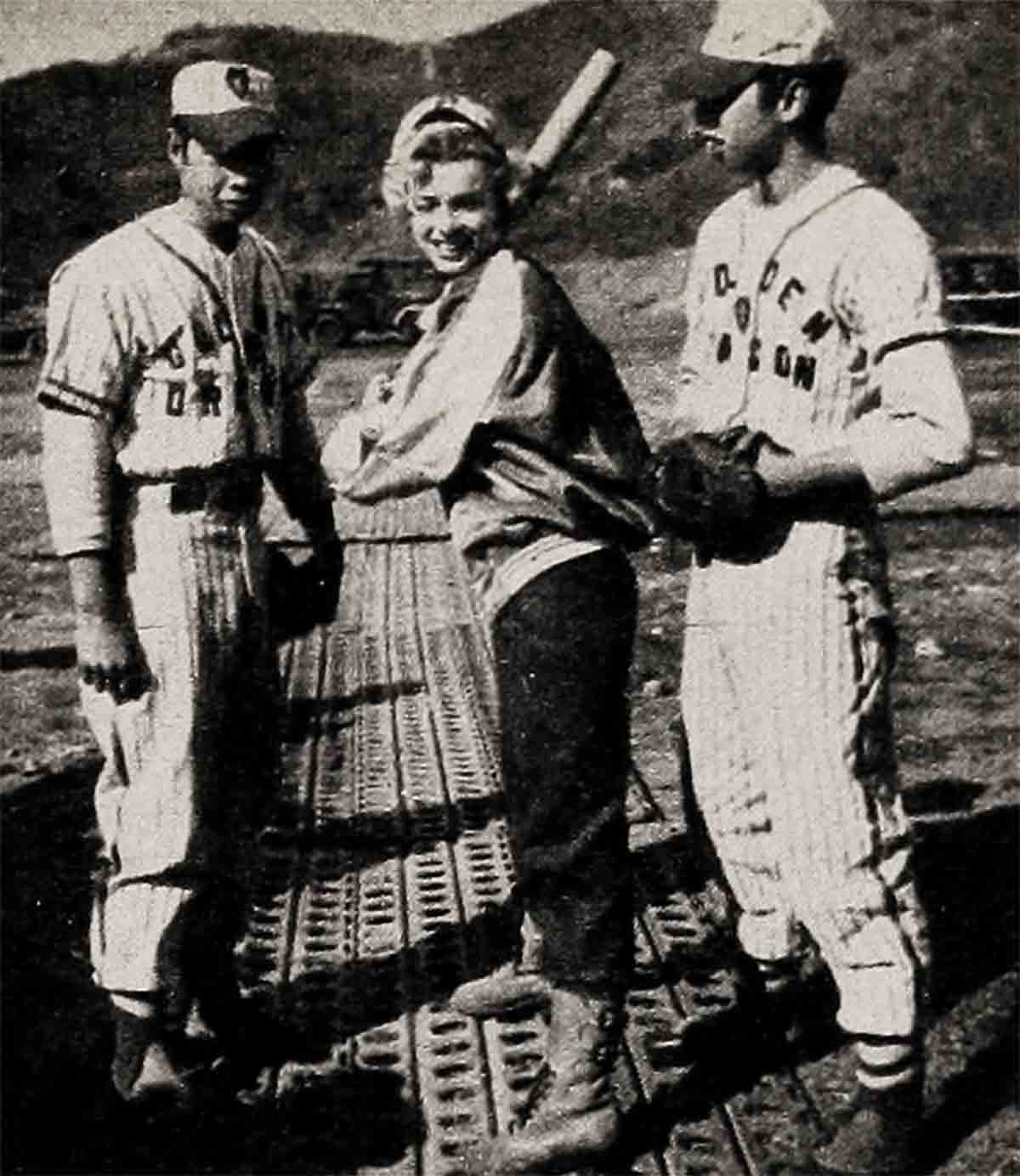
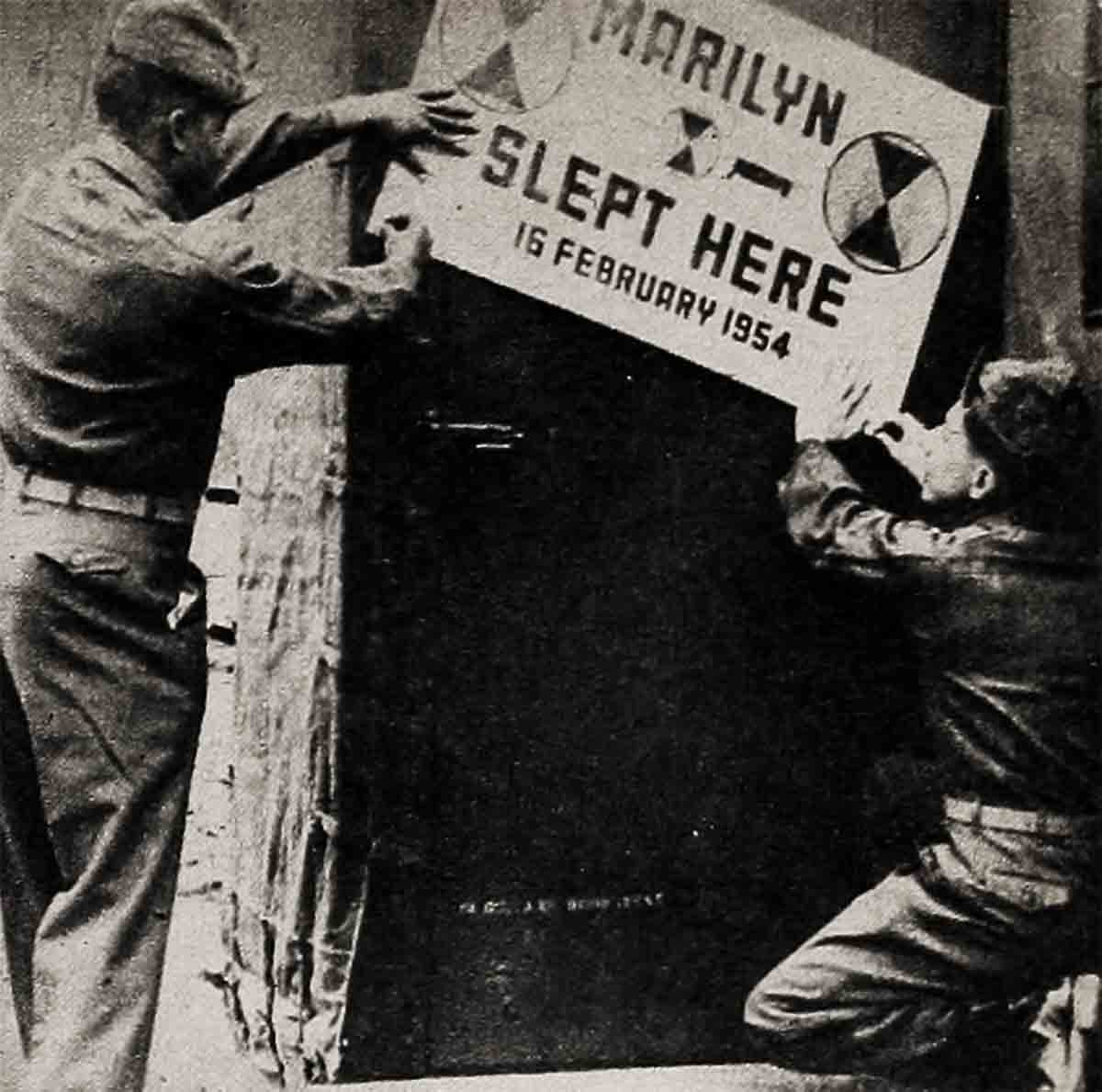
“Excuse, please, but do you sleep naked?”
The actress grinned. “No comment.”
“Have you ever seen your husband play in a baseball game?”
“No,” the actress answered. “I met my husband after he had retired from active baseball.”
“What do you plan to do in Japan?”
“Even though I’m on my honeymoon I understand I’ll have the chance to tour the Korean front, to entertain our. troops. I’m going for at least three or four days.”
“Your husband, Joe DiMaggio, no object?”
Marilyn shook her head. “No, it’s all right with him. We’ve discussed it.”
“What kind of fur piece is that you are wearing?”
“Fox,” the blonde quipped, “and not the 20th Century kind.”
“About 20th Century-Fox, please, you are now under suspension? Why?”
“Well, I read the script of the new movie and I didn’t care for it. That doesn’t mean I don’t like musicals—I like good musicals.”
“When you go to Korea will you wear ermine bathing suit like Terry Moore?”
Marilyn said no, she would wear a plain cocktail dress.
“Is your husband going to Korea with you?”
“No, he is staying behind with Mr. O’Doul to coach your baseball players.”
“Do you agree with Kinsey Report, Miss Monroe?”
“No, I do not.”
“You plan to give up career?”
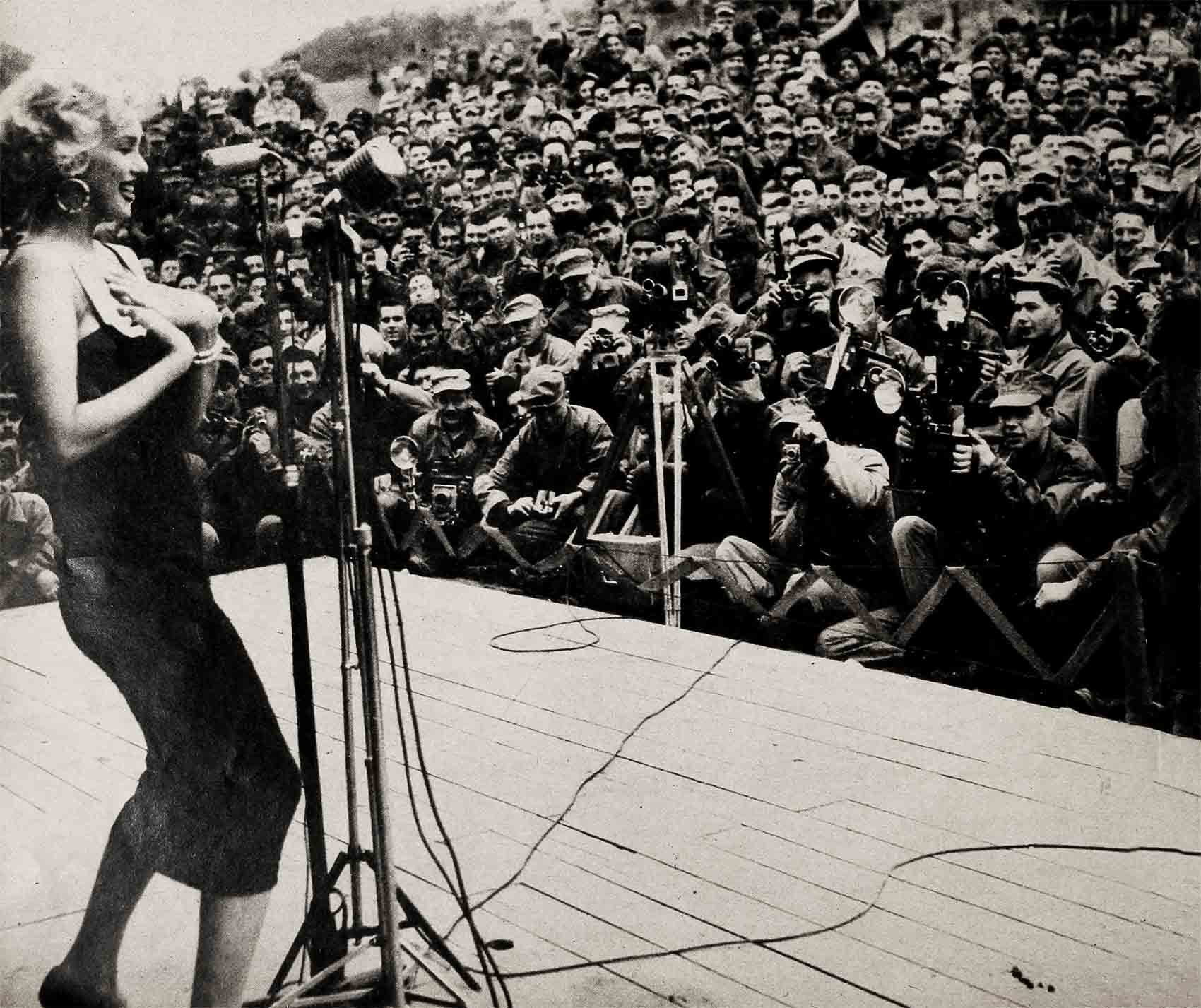
Marilyn thought for a moment. “No, I don’t, but my marriage comes before my career. I’d like to have a family.”
“Is it true you really want six children?”
It was here that Joe DiMaggio broke in. “Hey,” he called out. “You should ask me that question.”
Joe and Marilyn had very little time to themselves in Japan. One Sunday they drove out to Kawana, a fishing village, but photographers were spotted all over the place, and again the newlyweds had to pose for snapshots and answer questions.
When Joe flew south to coach with Lefty O’Doul, Mrs. O’Doul flew in to accompany Marilyn on her rounds.
The actress dropped in at the Tokyo Army Hospital, cheered several sick G.I.’s, and then worked out her Korea entertainment routine.
Pvt. Albert Guastefeste of Uniondale, Long Island, a music instructor at Camp Zama, was chosen to be Marilyn’s piano accompanist, and he ran through four numbers with the actress, “Diamonds Are A Girl’s Best Friend” and “Bye, Bye, Baby” from Gentlemen Prefer Blondes. Also “Let’s Do It Again” and “Somebody Loves Me.”
Marilyn was asked if she wanted to do a solo or entertain as part of a ten-man package show which had been performing in Okinawa. Marilyn said she’d prefer being part of the troupe.
She was flown to Korea on February 16, dressed in drab combat boots, pants, and shirt (two buttons opened at the top). She carried a little make-up bag and a purple dress cut low. She described it as “a cocktail party dress or something like that. After all, I hadn’t expected this. I didn’t bring the right clothes.”
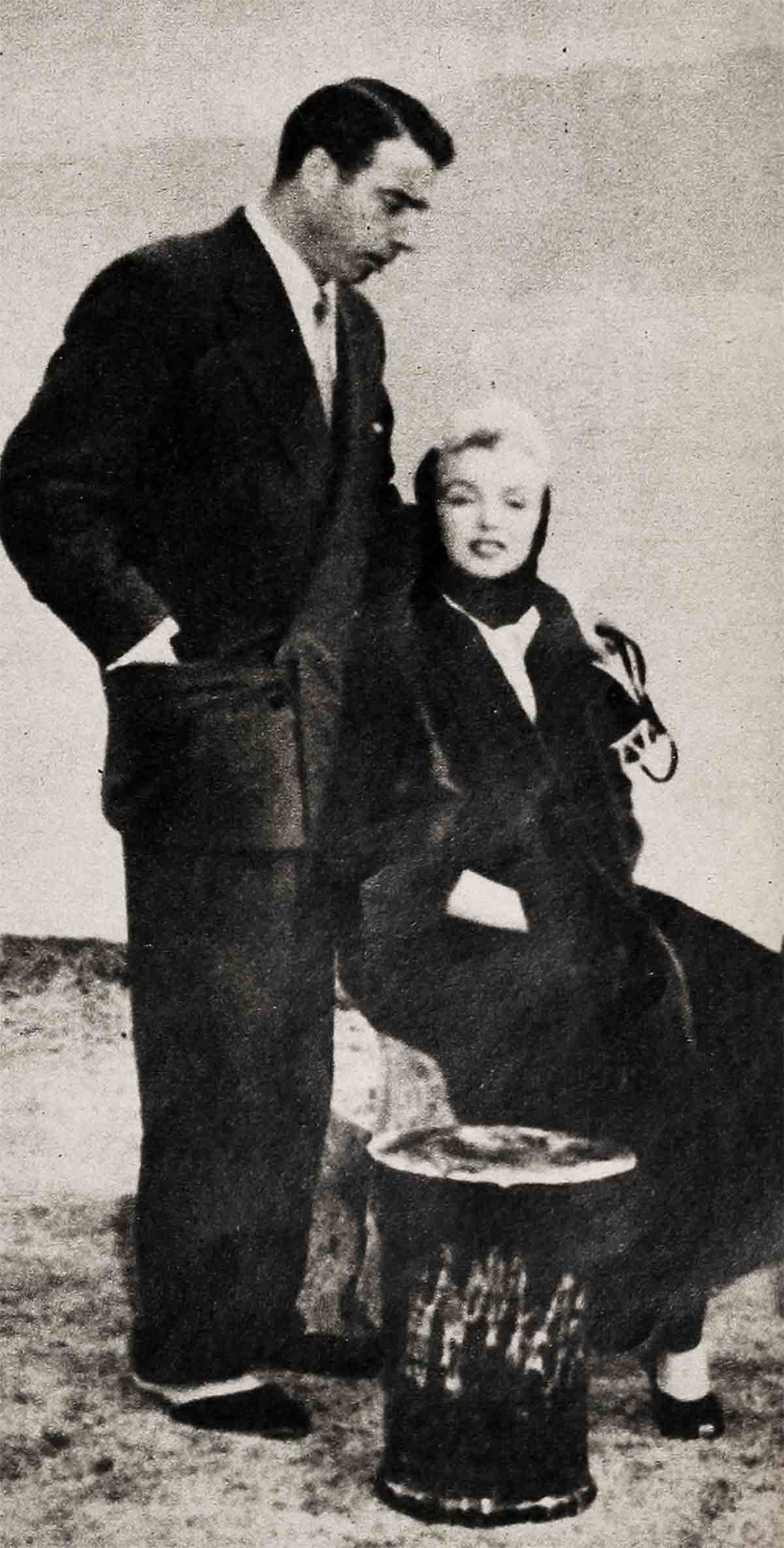
But the 13,000 Marines who watched Marilyn sing had no gripes at all. They swarmed over the stage, snapping their cameras left and right. After she finished her act, Marilyn said, “I’ve never seen so many men in my life. I’m just sorry Joe couldn’t come along but previous commitments wouldn’t permit a change in schedule.”
Said one Marine officer, “You were swell, absolutely swell. We’ve had them all but this crowd by far outdraws the best ever.”
Marilyn had been flown by helicopter from Seoul to the 1st Marine Division, “and while I was scared, I tried not to show it.”
Before she started her act on the Korean front, Marilyn announced that she could neither sing nor dance very well, but all she had to do was breathe and she evoked tremendous cheers from the 1st Marine and 3rd and 7th Army Divisions. The 40th Division, which consists of many California regiments, really broke the record.
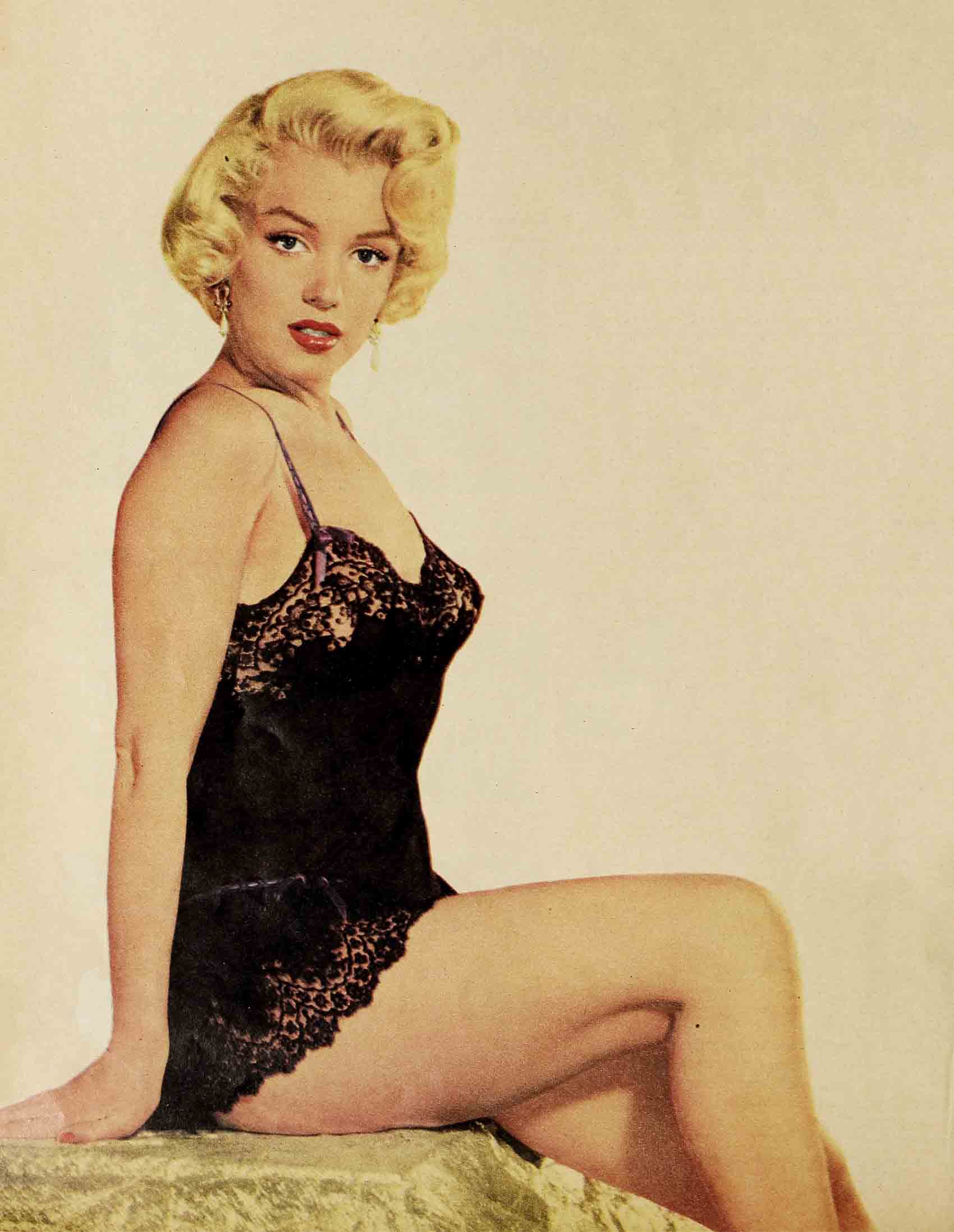
While the troupe’s preliminary acts were in progress at the 40th Division theatre, 10,000 soldiers pushed and elbowed forward in an effort to get closer to the stage.
When it looked as if they would break through the military police line, Marilyn was told to be “ready for anything” while the regimental commander, Colonel John Kelly, went out front and temporarily halted the show.
“You’re here to have a good time,” he shouted. “And there’s no sense in anyone’s getting hurt.”
When the show resumed and Marilyn came out front wearing the tight purple dress “that does a little more for me,” the crowd surged forward and thousands of soldiers attempted to climb on the backs of their buddies.
In three days, Marilyn performed ten times for an estimated 50,000 men. When she finally finished at Taegu, Korea, she was dead tired but happy.
“You know,” she told an officer, “I never felt like a movie star before—really in my heart—before I came to Korea. This is the high point of everything.
“Now I’m flying back to the most important thing in my life—Joe. And I want to start a family. A family comes before a career.”
Back in Japan with DiMaggio, Marilyn told her husband, “I’m so glad I went to Korea, Joe. I’ll never, never forget that experience so long as I live.”
A man of few words, Joe took his wife in his arms and nodded understandingly. But he must have wondered how much longer he would have to share his bride with the world.
THE END
(Marilyn Monroe can be seen in 20th Century-Fox’s River Of No Return.)
It is a quote. MODERN SCREEN MAGAZINE MAY 1954





No Comments